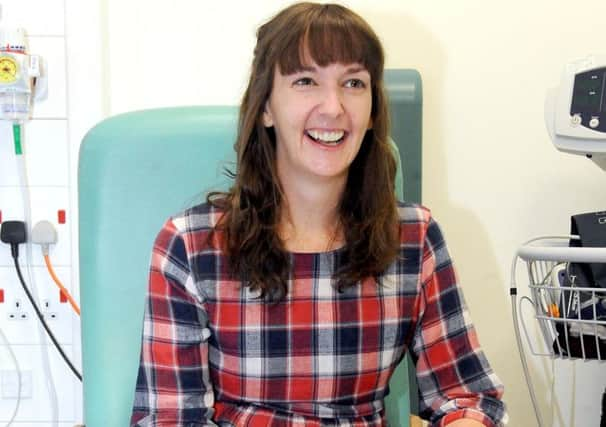Glasgow has long history in disease prevention


The Ebola crisis has dominated global health concerns in 2015, focusing minds on the vital need to find research-led solutions to this and other viral threats that transcend international boundaries.
The MRC-University of Glasgow Centre for Virus Research (CVR) is one of many such centres playing a supportive role in the Ebola epidemic, with several members of staff working as volunteers in Sierra Leone, using their skills to diagnose Ebola virus infections.
Advertisement
Hide AdAdvertisement
Hide AdThe CVR recently held its 20th annual virology workshop – a one-day meeting that brought together expert virologists from here and further afield. While Ebola continues to dominate the headlines, we cannot lose sight of the many other threats in the UK and abroad. A major focus of the workshop was vector-borne diseases caused by viruses that are transmitted via the bite of an infected insect, such as a mosquito or tick (arboviruses). The world’s fastest-growing vector-borne disease is dengue fever, with a 30-fold increase over the last 50 years.
The World Health Organisation estimates that more than 40 per cent of the world’s population – more than 2.5 billion people – are at risk of dengue virus infection and that there may be 50 million-100 million dengue infections worldwide every year.
There is no treatment or vaccine available for many vector-borne diseases, therefore attention is currently focused on identifying the pathways in the insect vectors that could be targeted to prevent further transmission.
Many diseases caused by arboviruses are present predominantly, although not exclusively, in warmer climates than Scotland’s. However, other viral diseases are a cause of public health concern for the UK and the NHS. So another key area for discussion at the workshop was the important role that the CVR is playing in Hepatitis C virus (HCV) research – a keen area of focus for the CVR over recent years due to a high prevalence of the disease in Scotland, particularly in Glasgow and among intravenous drug-users.
In November last year, HCV Research UK – a consortium of clinicians and researchers, backed by the Medical Research Foundation (the Medical Research Council’s independent charity) and launched in 2013 at the University of Glasgow – was able to announce that it had recruited 10,000 HCV-infected patients two months ahead of its target date. The patients are taking part in a cohort study collecting clinical data and samples that provide researchers with vital information about the longer-term impact of the disease.
With the introduction of new and improved treatments for HCV infection, the study comes at a crucial time for patients and has put HCV in the spotlight, helping to attract additional funding for further research.
The virology workshop at Glasgow University has been running for 20 years, but the university has played a key role in virology research since the late 1940s. Sixty years ago, teams were working on the characterisation of the herpes virus and on a new polio vaccine – today, polio has been almost eradicated globally.
If the Virus Research Unit, as it was known then, was pushing frontiers last century, then its successor, the CVR, faces even greater challenges. These will include studies on rabies, influenza and other viral diseases that can be transmitted by animals to humans. Infectious diseases, many of them viral in origin, kill 15 million people each year and continue to impose a major burden on healthcare resources.
Advertisement
Hide AdAdvertisement
Hide AdOf the pathogens known to infect humans, about 50 per cent are thought to have their origin in animal species – these zoonoses are transmissible between animals and humans and vice versa.
The CVR will continue to investigate zoonoses, developing our understanding of them. The dramatic increase in travel and the globalisation of commercial exchanges, plus intensive farming and ecological and climate changes have substantially increased the opportunities for viruses to jump to different species.
Understanding this jumping is only one of the many challenges that virologists at the CVR and elsewhere are facing. Can we predict the emergence of “new” virus infections? Can we develop better tools to diagnose virus infections? Can we develop vaccines for Hepatitis C? How can we control mosquito-borne viruses diseases such as dengue? Answers to these and many other questions will require our focus in the years to come.
• Professor Massimo Palmarini, is director of the MRC-University of Glasgow Centre for Virus Research
SEE ALSO